
Filter News
Area of Research
- (-) Clean Energy (19)
- (-) Supercomputing (43)
- Biological Systems (1)
- Biology and Environment (34)
- Computational Biology (1)
- Computational Engineering (1)
- Fusion and Fission (7)
- Fusion Energy (1)
- Isotopes (4)
- Materials (26)
- Materials for Computing (3)
- National Security (4)
- Neutron Science (13)
- Nuclear Science and Technology (7)
- Quantum information Science (2)
News Type
News Topics
- (-) Advanced Reactors (5)
- (-) Biomedical (16)
- (-) Clean Water (4)
- (-) Frontier (25)
- (-) Microscopy (12)
- 3-D Printing/Advanced Manufacturing (52)
- Artificial Intelligence (37)
- Big Data (15)
- Bioenergy (27)
- Biology (16)
- Biotechnology (5)
- Buildings (20)
- Chemical Sciences (14)
- Climate Change (27)
- Composites (7)
- Computer Science (81)
- Coronavirus (20)
- Critical Materials (4)
- Cybersecurity (14)
- Decarbonization (27)
- Energy Storage (48)
- Environment (43)
- Exascale Computing (20)
- Fossil Energy (2)
- Fusion (1)
- Grid (24)
- High-Performance Computing (32)
- Isotopes (1)
- Machine Learning (15)
- Materials (30)
- Materials Science (28)
- Mathematics (2)
- Mercury (2)
- Microelectronics (1)
- Molten Salt (1)
- Nanotechnology (13)
- National Security (11)
- Net Zero (3)
- Neutron Science (18)
- Nuclear Energy (9)
- Partnerships (12)
- Physics (7)
- Polymers (6)
- Quantum Computing (15)
- Quantum Science (21)
- Renewable Energy (1)
- Security (9)
- Simulation (12)
- Software (1)
- Space Exploration (3)
- Summit (36)
- Sustainable Energy (39)
- Transformational Challenge Reactor (3)
- Transportation (38)
Media Contacts
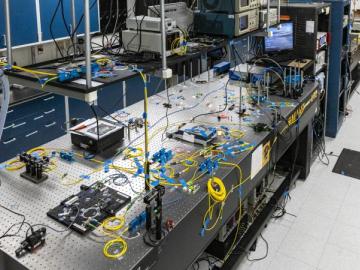
A rapidly emerging consensus in the scientific community predicts the future will be defined by humanity’s ability to exploit the laws of quantum mechanics.
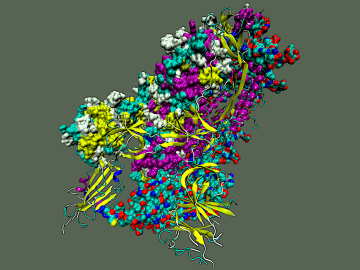
To explore the inner workings of severe acute respiratory syndrome coronavirus 2, or SARS-CoV-2, researchers from ORNL developed a novel technique.

A world-leading researcher in solid electrolytes and sophisticated electron microscopy methods received Oak Ridge National Laboratory’s top science honor today for her work in developing new materials for batteries. The announcement was made during a livestreamed Director’s Awards event hosted by ORNL Director Thomas Zacharia.
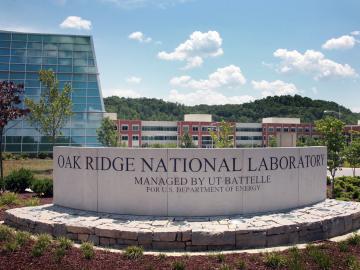
Ten scientists from the Department of Energy’s Oak Ridge National Laboratory are among the world’s most highly cited researchers, according to a bibliometric analysis conducted by the scientific publication analytics firm Clarivate.

The U.S. Department of Energy’s Office of Science announced allocations of supercomputer access to 51 high-impact computational science projects for 2022 through its Innovative and Novel Computational Impact on Theory and Experiment, or INCITE, program.

Four first-of-a-kind 3D-printed fuel assembly brackets, produced at the Department of Energy’s Manufacturing Demonstration Facility at Oak Ridge National Laboratory, have been installed and are now under routine operating
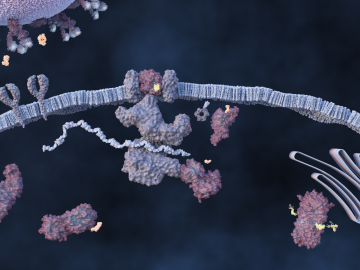
An ORNL-led team comprising researchers from multiple DOE national laboratories is using artificial intelligence and computational screening techniques – in combination with experimental validation – to identify and design five promising drug therapy approaches to target the SARS-CoV-2 virus.
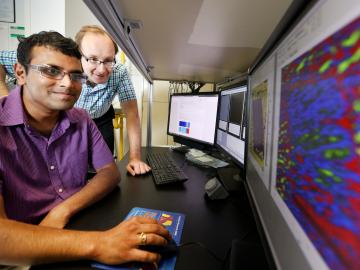
At the Department of Energy’s Oak Ridge National Laboratory, scientists use artificial intelligence, or AI, to accelerate the discovery and development of materials for energy and information technologies.

The U.S. Department of Energy’s Innovative and Novel Computational Impact on Theory and Experiment, or INCITE, program is seeking proposals for high-impact, computationally intensive research campaigns in a broad array of science, engineering and computer science domains.
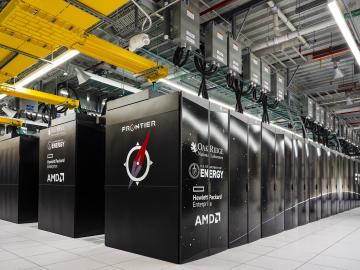
A multi-institutional team, led by a group of investigators at Oak Ridge National Laboratory, has been studying various SARS-CoV-2 protein targets, including the virus’s main protease. The feat has earned the team a finalist nomination for the Association of Computing Machinery, or ACM, Gordon Bell Special Prize for High Performance Computing-Based COVID-19 Research.


